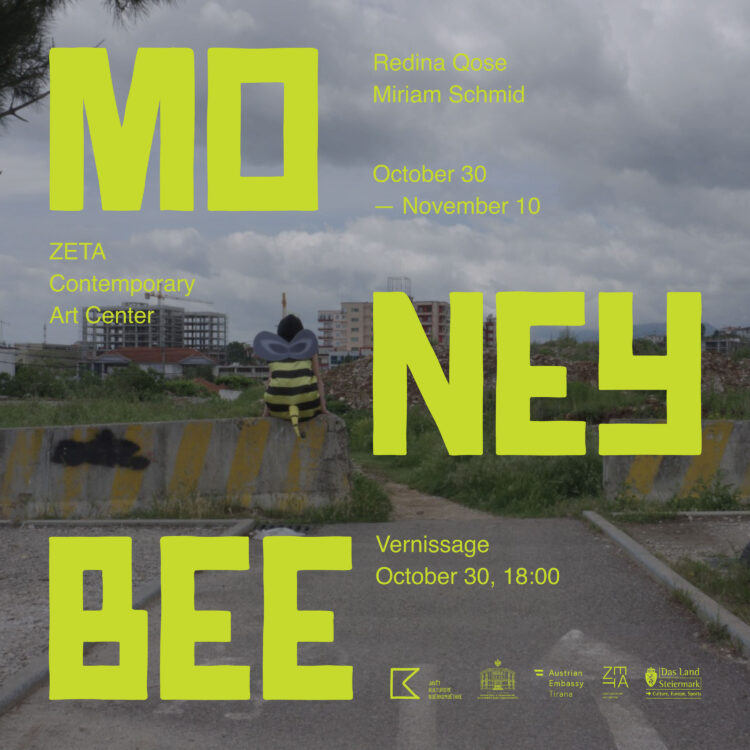MONEYBEE
Redina Qose and Miriam Schmid
October 30 ─ November 10
Vernissage: October 30, 18:00
ZETA Contemporary Art Center
─
During her residency at Zeta Center for Contemporary Art, Redina Qose created a work that was inspired by her walks with fellow artist Miriam Schmid. Redina interferes in public spaces by removing several empty street name plates from neighbourhoods in Tirana and repositions them within the gallery on a wall map, placing them in their original locations.
These blank plates, funded by citizens’ money, serve no purpose, highlighting a disconnect between public service and civic responsibility. Her action raises critical questions: Are these neglected signs relics of forgotten promises, or do they reflect an ongoing indifference to community care?
Miriam Schmid studied education and educational sciences and was trained in theater pedagogy. She is active as a freelance performer, director and theater maker in Graz and Vienna. In 2014 she won the cabaret competition Grazer Kleinkunstvogel and co founded the performance collective Das Planetenparty Prinzip in 2015. She was awarded the startup fellowship for performing arts of Bundeskanzleramt Österreich in 2020. After curating the performance section, she has been leading the cross-disciplinary art association Forum Stadtpark together with Robin Klengel and Markus Gönitzer, since 2021. Her artistic focus is on developing concepts for performances (live or video) that explore the boundaries of reality and fiction.
Redina Qose, born in 1996 in Patos, Albania, is currently living and working in Tirana. She earned her degree in Multimedia from the University of Arts in Tirana in 2019. Her artistic practice spans across various mediums, in visual and conceptual art, such as photography, video art, performance, and audio-visual installation, reflecting on thought-provoking narratives. Her work explores themes like migration, beliefs, exploring the complexities of human relations, and societal issues. In her practice she reflects also on generational trauma, and the enduring impact of historical and social contexts on Albanian contemporary realities.
